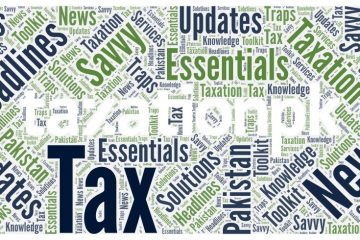The world of income tax can feel like a complex labyrinth, especially when dealing with diverse income sources like dividends, interest, royalties, and fees. In Pakistan, understanding the various rates and scenarios for these income types is crucial for ensuring compliance and optimizing your tax planning. This guide aims to illuminate the key regulations and distinctions applicable to each category.
Dividends:
- General Rule: Most dividends earned from companies, including mutual funds and REITs, are subject to a final tax of 15%.
- Exceptions: Specific situations warrant different tax rates:
- IPPs with Pass-through Dividends: For qualifying dividends from Independent Power Producers, a reduced rate of 7.5% applies.
- Exempt or Loss-Carrying Companies: If the company distributing the dividend enjoys full income exemption or loss carry-forward benefits, the tax rate jumps to 25%.
- REIT Specifics: Dividends received by a REIT scheme from a special purpose vehicle (SPV) are completely tax-free, while dividends received by any other person from an SPV face a hefty 35% tax.
Interest:
- Companies: Interest earned by a company is taxed as part of its overall income at the standard corporate tax rate.
- Non-Resident Companies: For non-resident companies without a permanent establishment (PE) in Pakistan, interest income taxability depends on the applicable Double Taxation Treaty (DTT).
Royalties and Fees:
- Royalties to Non-Residents: Royalties received by non-residents are considered taxable in Pakistan if paid by a resident or borne by a local PE of a non-resident.
- Technical Services and Offshore Digital Services: Similar to royalties, “fees for technical services” and “fees for offshore digital services” paid by residents or borne by a local PE are subject to taxation in Pakistan.
- Additional Services: Even income from services like money transfers, card networks, payment gateways, and inter-bank financial telecommunication services provided by non-resident companies without a PE falls under Pakistan’s tax net.
Remember:
- Double Taxation Treaties (DTTs) may offer reduced tax rates or exemptions for treaty countries in most cases.
- Staying updated on tax regulations and consulting with a qualified tax professional is highly recommended for navigating these complexities effectively.
By understanding the different rules and rates applicable to dividends, interest, royalties, and fees, you can confidently navigate the Pakistani tax landscape and ensure optimal compliance. Let’s strive to shed light on the tax maze and pave the way for efficient financial planning in the country.







Ptcl Tax for the period of 1 jun 2023 to 30 jun 2024 is required please